Breadcrumbs
- Home
- MD/PhD Program
- News
- Temerty Medicine MD class of 2T4: Six graduates share their stories
Temerty Medicine MD class of 2T4: Six graduates share their stories
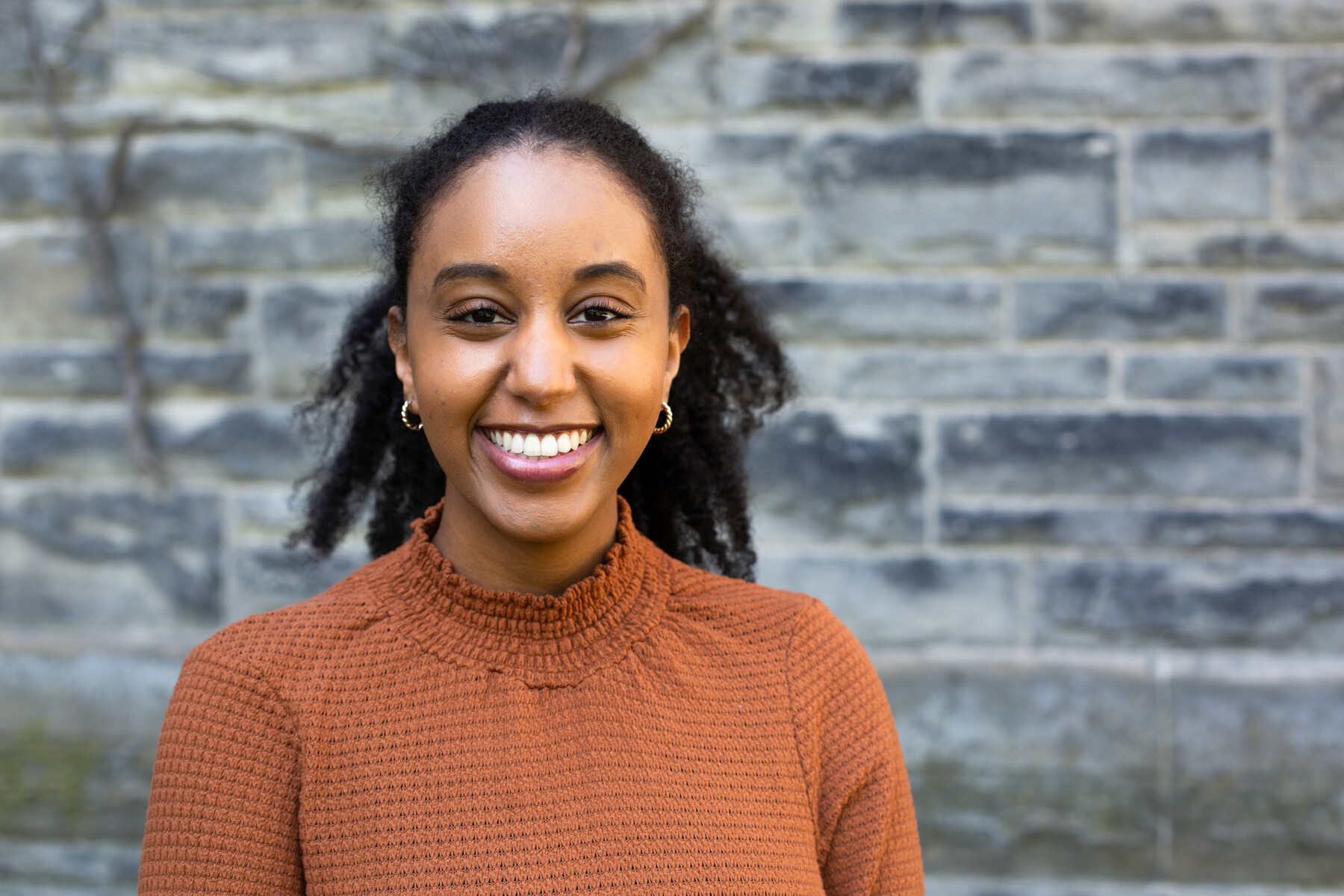
Nahid Iseyas
Over the past eleven years, I’ve had the privilege of working with youth and their families in the Rexdale community through the Junior Youth Empowerment Program (JYEP), an educational initiative dedicated to empowering youth to analyze their lives and the communities around them and to take action to selflessly be of service to neighbourhoods. While working alongside families in this community, many of which are newcomers to Canada, I became intimately aware of the health inequities faced by immigrant and refugee populations and was inspired to pursue medical school as a means to tackle these inequities on an individual and systemic level.
Throughout my time in medical school, I have had the opportunity to work on grassroots initiatives focused on developing solutions to healthcare barriers identified by newcomer parents in Rexdale. I’m passionate about empowering youth and their families to take ownership over their health and facilitating connections to accessible healthcare services. These initiatives have been the highlight of my medical school journey and I am so excited to continue them in residency! Beyond health advocacy, I am also excited to contribute to medical curriculum development that incorporates culturally competent and contextually relevant care strategies for patients of all backgrounds and beliefs.
It’s probably cliché to say this, but the biggest highlight of my training over the last 4 years have been the lifelong friends I’ve been fortunate enough to make along the way. We’ve gone through so much together, everything from pretending to auscultate our laptop screens as we navigated our studies through a pandemic, travelling together for the first time after lockdowns were lifted, ranting in on-call rooms about the endless amount of work that never seemed to end, to finally celebrating each other’s victories as we wrap up our final year of medical school. I’m so grateful to each and every one of them and I cannot wait to witness them take on the world and achieve their dreams!
I am so excited to begin my residency in Paediatrics at the University of Toronto! I first became attracted to the idea of a career in paediatrics while working with children and youth in the JYEP. I have witnessed the impact of breaking barriers of social inequities early in a child’s life and I look forward to working towards breaking these barriers as a physician and changing the trajectory of health outcomes for marginalised paediatric populations.
If I could talk to my first-year-of-med-school self, I would emphasise that medical school is truly a marathon, and not a race! I would tell her to pace herself, take breaks when needed, and continue to be intentional about spending time with family and friends outside of medicine. I think I would also tell her to document more of her journey throughout the years and truly cherish the meaningful moments she has with her friends, patients, and teachers.
Advice for incoming students: Remind yourself of what drove you to pursue medical school and hold onto it, tightly. Write it down in a journal or even tape it to your locker. There will be days when you feel like you might have lost sight of this passion. On those doubtful days, close your eyes and remind yourself of the person you were before you started this journey and imagine the you that will be after. There will be so many days when you feel less than what you were before you started, but this will not change the incredible things you have accomplished thus far and the wonderful things you will achieve in the future!
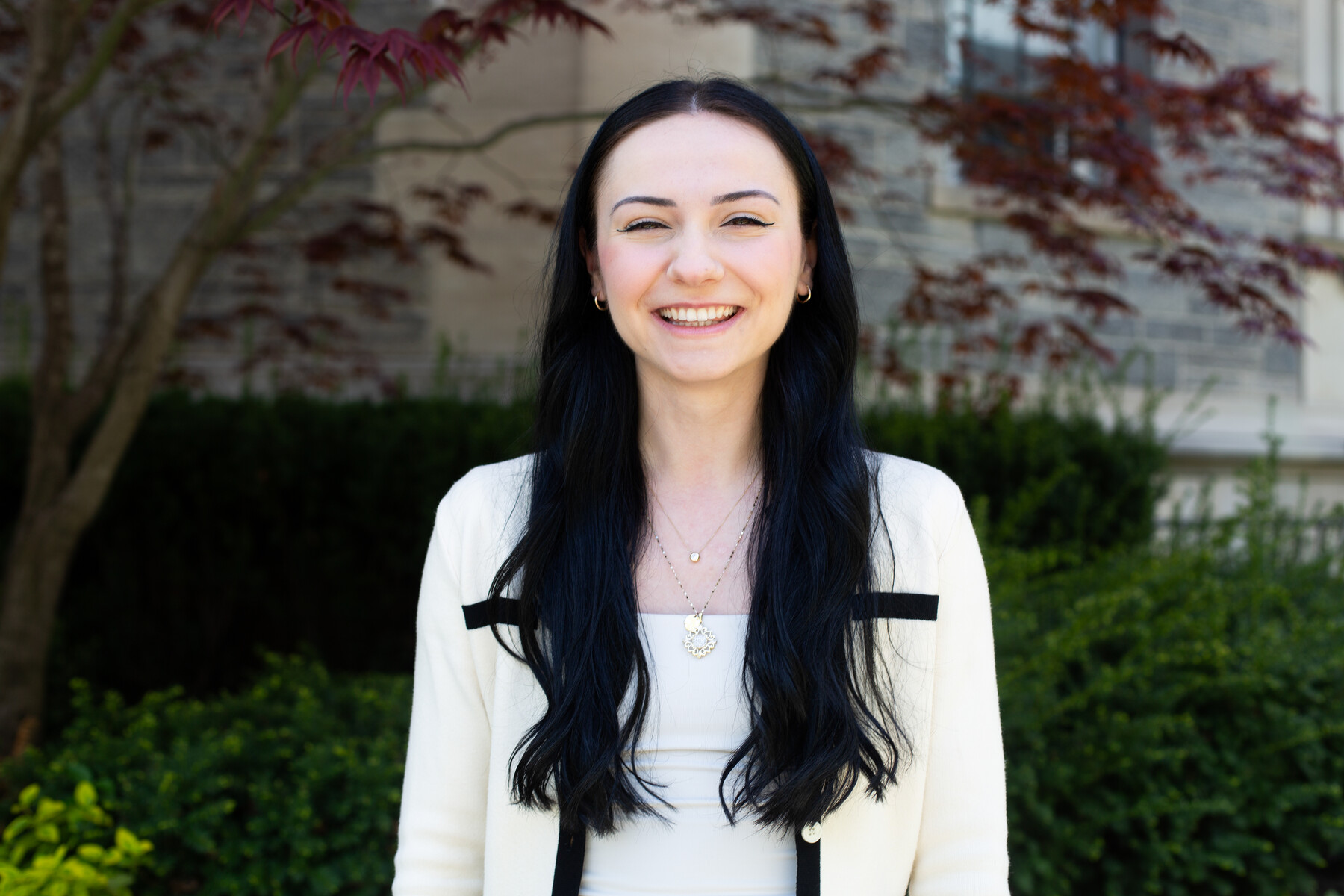
Nina Hadžimustafić
What made me want to become a physician? The most candid answer is that I was absolutely enthralled by Dana Scully, the X-Files FBI investigator and doctor extraordinaire! It was the first time that I had seen a woman in STEM, and I became very excited at the possibility of being like her. Obviously, this was just a spark; my later consolidation of interests through my biochemistry degrees and human interaction ultimately brought me to medicine.
Two of my top highlights from medical school: being Class Co-President and the Daffydil musicals.
Class presidency was not something that I ever expected myself to do, but it has been the most rewarding experience to support my classmates through their journeys to become physicians. Just as physicians get a privileged window into patients' lives, I had a privileged window into the lives of 2T4s. I'm grateful to 2T4s for entrusting me with this role.
The Daffydil musicals are where I met some of my best friends -- they continue to amaze me with their incredible talents. I'm so proud of my Daffamily for creating two whole films while being medical students. Being part of the myriad of talented individuals who brought the whole film together brought me incredible happiness.
Up next: Plastic and Reconstructive Surgery Residency at McGill University. I did not come into medicine planning to go into plastic surgery and had to thoroughly explore it through clinical exposure and research before deciding to pursue it fully. In hindsight, it was always perfect for me as it is hands-on, creative, and detail-oriented. The focus in plastic surgery is restoration of form and function. I'm so excited to be a part of restoring patients' abilities to do the things they are passionate about, as well as restoring form and in turn pieces of their identities. Form and function contribute to building patient confidence, and I love that confidence is a priority outcome.
To my first-year-of-med-school self, I’d say: stay true to your interests without worrying too much how it will all fit together in the end. If you do that, it will fit together. I have always loved ballet and piano, and joined activities that allowed me to continue these two interests. I had no idea how this might fit into an application to be a surgical resident, but retrospectively, it made sense - plastic surgery is a very creative field and the puzzle pieces fell together.
Advice for incoming students: Congratulations! YOU MADE IT, you are a medical student at University of Toronto -- something you worked so hard for, hoped, dreamed, and wished on lucky stars, pennies, and eyelashes for. It's so easy in medical school to go directly from a "pre-med" to a "pre-match" mentality. It's important to remember when you're anxious about the next career step to slow down, return to the present: where you are now was your biggest dream a few months ago!

Koren Teo
I took an unconventional and (very) indirect path to medicine. I started out in a career as a military pharmacist. While that was a phenomenal path with no shortage of fun and adventure, I knew I needed something more. I needed a sense of ‘holistic’ in my work, I wanted to approach issues from more than one prescribed angle, and I craved the ability to provide patient care in more than one dimension. To be honest, I didn’t know what to do with that information at first. I continued to work for a few more years, explored, and started my family. Along this journey, I met some wonderful physicians, from those that reassured me with the utmost kindness when I didn’t know what to do with my colicky baby, to brilliant colleagues who I consider my mentors. It was from these wonderful people and interactions that I realized medicine checks all the boxes for me.
The aspect of medicine I am most passionate about is making a difference in people’s lives, whether it be on a population or individual patient level, big or small, and especially seemingly small things (like encouraging sprinkles of physical activity) that can actually make a big difference. I look forward to working collaboratively with my patients to achieve their health goals. To know and feel that what we are trained to do has real impact is truly special and keeps me motivated.
Medical school was a life-changing experience, with countless memories and friendships. If I had to pick one highlight, it would be the morning where we got to meet our classmates in-person, for the very first time after being in school together over zoom for a year. (For context, our class started medical school on Zoom, during the height of the pandemic) People were either very tall or a lot less tall than I expected, and some I just could not recognize altogether. Aside from the humour, it was an overwhelming amount of joy to finally meet and connect with everyone that I had been on this journey of medical school together with.
I am excited to be starting a family medicine residency with McMaster university at the Brampton site. At risk of sounding cliché, I was attracted to family medicine from the beginning. The thing I enjoyed most in my previous work as a pharmacist was the longitudinal relationship with patients. I loved hearing about their milestones and meeting new additions to their families. Aside from that, I also knew that my brain naturally preferred a big-picture approach and to examine all the bits and pieces as a whole. Family medicine made sense for me.
If I could talk to my first-year-of-med-school self, I would say, ‘keep calm and eat (another) ice cream.’
Advice for incoming students: Everything will work out the way it was meant to. You are here because you are meant to be, and you are meant to succeed. Medical training is a life-changing experience. Enjoy the process and your people!
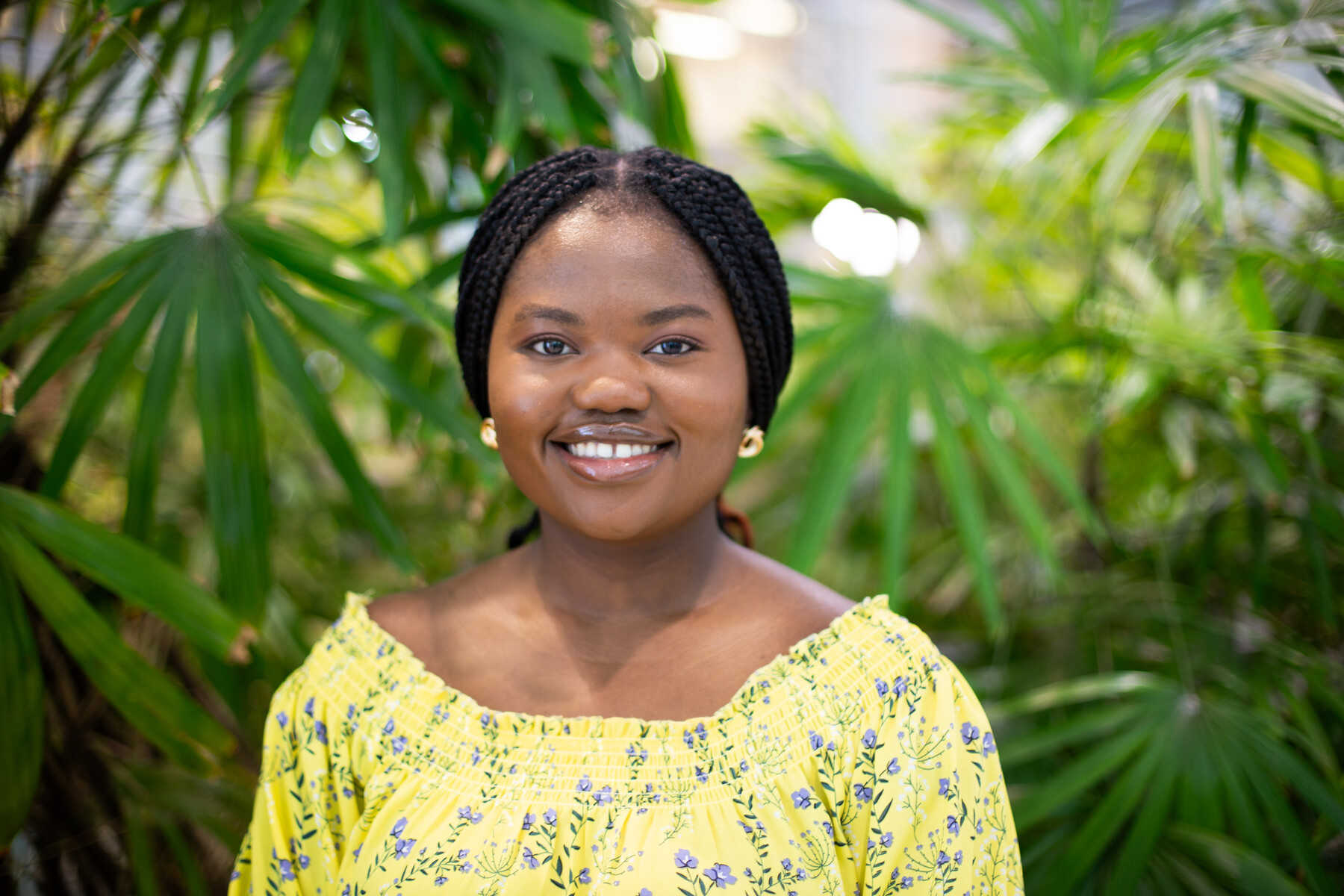
Julianah Oguntala
I have always been fascinated by the human body and loved learning about science. When my brother was younger, he was prone to episodes of febrile seizures and at that time, I did not understand them. While my sisters and I were shielded from witnessing the seizures, I could see the distress each episode caused my parents. I was in the ED one evening with my father and brother when he had a seizure, the first I witnessed. As the tonic-clinic movements started, I stood back, too stunned to speak, while my father cried for help. As we stood, helpless, I watched as the physicians and nurses jumped into action to stabilize my brother and abate the seizure. This ignited a spark in me. Looking back now, I recognize that this event helped me connect my interest in science and the human body with serving others at some of the most vulnerable moments in their lives. As I progressed through high school and my undergraduate degree, I shadowed at Humber River Hospital and in a cardiologist's clinic. I realized the leadership and advocacy roles physicians fill.
I am passionate about reducing the disparities in health outcomes specifically concerning the incidence of cardiovascular disease in marginalized groups. In medical school, we were taught that cardiovascular disease disproportionately affects Black communities but the ‘why’ was not expanded on. One of my research projects focused on finding out why and then implementing a pilot solution. One of the reasons is health literacy, individuals not having and/or understanding the information needed to make healthy lifestyle decisions, especially when it comes to nutrition. Through the CHOICES (Community Hypertension Outcomes Improvement through Computerized Education Seminars) study, we provide culturally relevant nutrition seminars to Black adults with hypertension. This is a pilot project with plans to further expand reach and access through Ontario Health. Throughout my career, I hope to continue to address these health disparities through research and community engagement.
I am also passionate about connecting with and maintaining therapeutic relationships with my patients. During a patient’s admission to the hospital, you truly get to know them and engage in shared decision-making to develop and implement a management plan. I am excited to continue to form these relationships and be a part of a team that provides excellent patient care.
I will be continuing my training at the University of Toronto in the Internal Medicine program.
Growing up in northwest Toronto, I was surrounded by immigrant families who, like mine, struggled to adjust to a new country. The disparities in healthcare I observed drew me to pursue medicine to serve equity-deserving groups. When my father experienced a stroke in 2019 due to uncontrolled hypertension, I wanted to understand why and be equipped to minimize the risk of future events for him and similar patients. During my General Internal Medicine (GIM) rotations, I enjoyed the therapeutic connections I established with patients, the diagnostic challenges, and the intellectual pursuit I experienced in a fast-paced environment. My interest in Internal Medicine was solidified. I am attracted to Internal Medicine’s combination of acquiring and applying medical knowledge and skills to diagnose and manage complex, multi-system presentations, with a commitment to patient advocacy in a collaborative environment.
I have absolutely enjoyed my medical school journey at Termerty Med. One highlight would be the connections I made in my first year through the Medical Christian Fellowship that have blossomed into lifelong friendships. Starting medical school during the COVID-19 pandemic was isolating and I initially worried about making friends. I am blessed to have found a fellowship that connected me to a group of classmates who are now dear friends with whom I was able to support and receive support as we weathered the highs and lows of medical school.
Another highlight is my role as the Director of the CASPER Preparation Program through Community of Support in the Office of Access and Outreach. My team expanded this program to reach over 700 pre-medical students each year, providing free access to coaching as they prepared for the CASPER program. As a pre-medical student, I greatly benefited from the free COS programs and I sought to give back as I started medical school.
To first year Julianah: Congratulations! You made it to medical school. The next four years will be an incredible time but will go by very quickly. Cherish the friendships you make and the experiences you will have. There will be ups and downs but trust God during this process as things will work out for your good. Your 3rd-year clerkship and the CaRMS process will be two of the most difficult parts of medical school. Your limits will be tested and you will feel overwhelmed many times. However, rely on your faith and d don’t forget to carry along those you love in the process.
Advice for incoming students:
1. First, take a moment to truly take in the fact that you are here. Your hard work has paid off and are about to embark on a journey of caring for human lives. Do not take this for granted and always remember the privileged position you hold.
2. Time flies. Four years feels like a long time but before you know it you will start clerkship and things progress very quickly from then onwards. Cherish each stage of the journey, even the tough ones as they will pass and you will see that you have grown after each stage. Don’t forget to make and maintain lifelong friends with your classmates, supporting them through this process as they support you.
3. The CaRMS process can be daunting but trust that you will get through it. In your first and second years, explore specialties widely, even if you are already sure of what you want to do. As you discover your interests, identify trusted mentors and sponsors, at all stages of their careers, in the field. Their advice will be invaluable to navigating the hidden curriculum of each specialty.
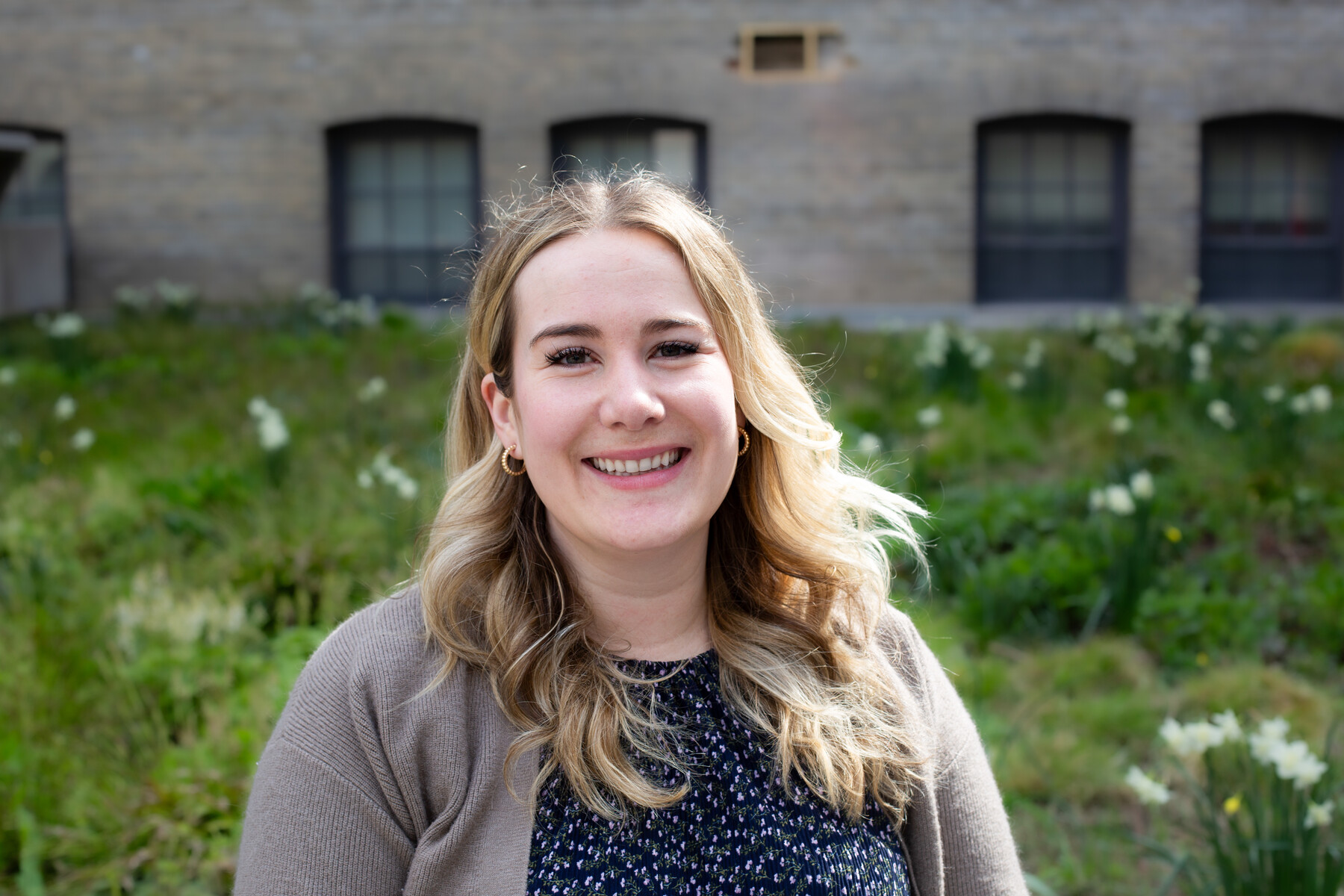
Jillian Macklin
“Be somebody who makes everybody feel like a somebody”. This has been my motto for a very long time; I want everyone to feel seen, heard, and valued. Whether it is the small town I grew up in, or the academic community I have found myself in downtown Toronto, community has been the core of my identity and at the root of why I became a physician. Physicians are pillars of support and empowerment in communities. They have the privilege of deeply connecting with their patients with vulnerability, humility, and humanity. I want to be a safe space to bear witness to transitions through someone’s life.
I was part of the combined MD/PhD program at TemertyMed. My PhD in health services research focused on cardiac care delivery to people experiencing homelessness in Toronto’s shelter system. Relationship building with the homeless community and folks of lived experience was fundamental to this work. I am passionate about equitable access to dignified healthcare for all groups, especially those who use substances, with severe mental illness, and with experience of homelessness. We must meet people where they are. I am also passionate about providing trauma-informed care; to listen and value peoples’ stories - to really empathize with what has happened to them - that have made them who they are today.
I am heading back to my hometown of Belleville, Ontario to pursue Family Medicine Residency through Queen’s University at their Belleville-Quinte site. I look forward to serving a town that has given me so much growing up. After an elective in rural family medicine in Northern Ontario, I fell in love with the community-based nature of family medicine, forming lifelong relationships. All in the same day, we took on the role of hospitalist, emergency department provider, and provided care on the street and in the regional jail – every day can be different and exciting in family medicine. I can’t wait to get started!
Shout-out to the Daffy Family! One of the greatest highlights of my time at Temerty Med was being the director of Daffydil, a musical entirely written, produced, directed, and performed by medical students. This role was way outside my comfort zone. The energy and teamwork were astonishing. The memory of the stage lit up on opening night is something I will never forget. I am thankful to have made lifelong friendships through this experience. I highly recommend dancing and singing your way through med school.
If I could talk to my first-year-of-med-school self, I’d say: Be authentically, unapologetically ‘you’. Love what you love. Question what does not feel right. Be open and run through doors with new opportunities, but do not be afraid to say no to opportunities that aren’t a “heck yes”. You will change so much through this journey, and you need to trust that you are on the journey that you are meant to be on.
Advice for incoming students: Really find your people. The mentors that know what gets you going in the morning. The friends inside of medicine that you will share some tough times on the ground with. The friends outside of medicine to remind you that burritos and pickleball are just as important as med school. The colleagues that energize you at work. It will take time to meet your people and form these relationships, but it makes the journey more joyful and rich.
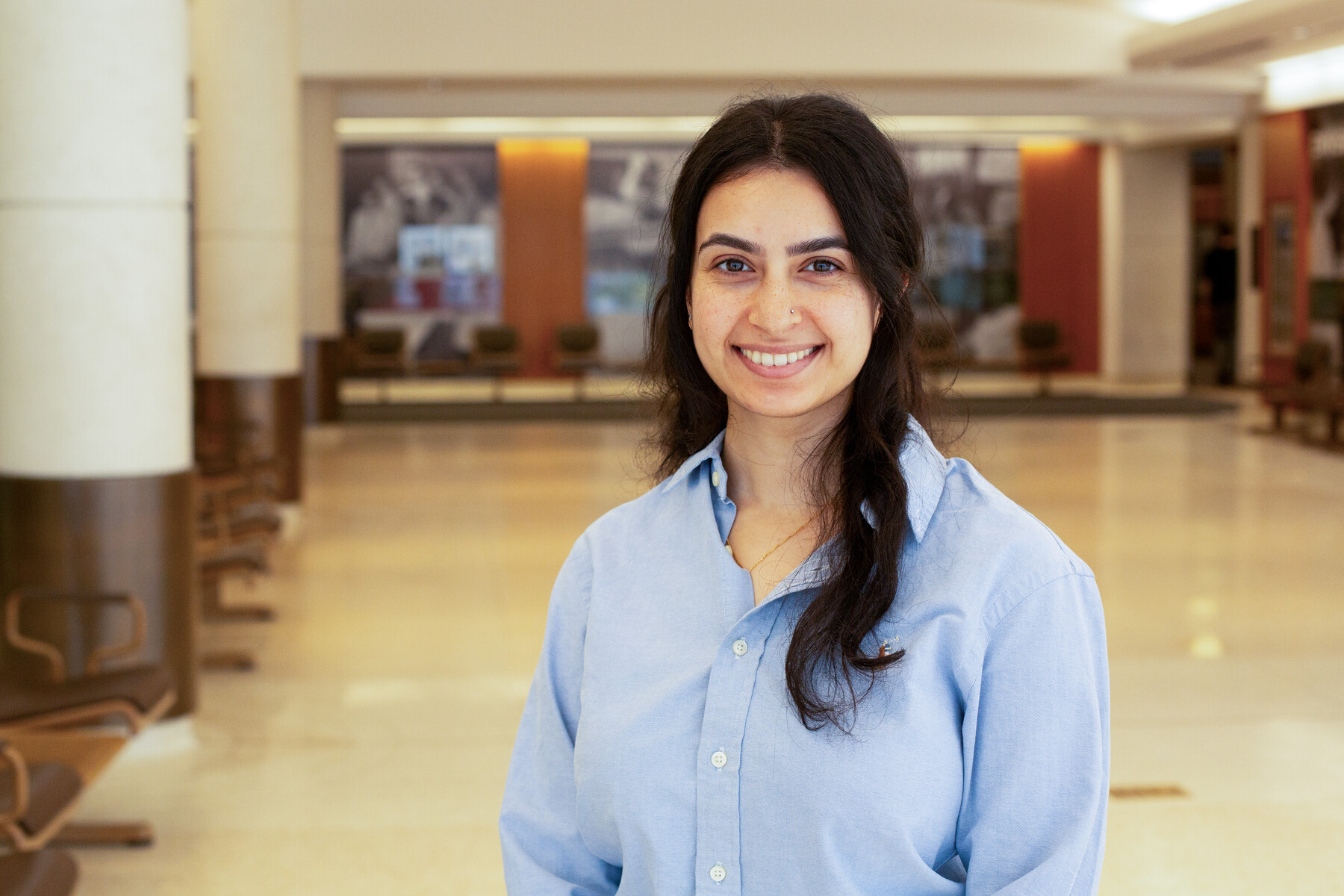
Neha Malhotra
I was drawn to medicine because I was looking for something that was at the intersection of science and humanities that allowed me to maintain my curiosity for the natural world and the humans around me. Doing care work is one of the utmost privileges we can be given and showing up for someone in a way that allows for their humanity to be preserved in their healing journey is a role I felt I could do justice to. Health is one of those things that is not only affected by social inequities but when we aren’t well, it also perpetuates our ability to live the fullest versions of our lives. As a physician, I can work in an interdisciplinary team with people who bring their own unique gifts and together we can care for our fellow beings towards healing bodies, minds, and spirits.
I firmly believe health is a fundamental human right, and the right to be the fullest versions of ourselves is what drives my daily practice. For me, undoing and preventing further harm from colonial violence is the foundations of health justice, and that means centering Indigenous Knowledge, continuing to educate myself about the relationship our health has with the land, and challenging myself to practice medicine holistically rather than scientific reductionism that can often cause us to lose sight of the beautiful, integrated way our body systems communicate with each other. Colonization has not just impacted our understanding of health and medicine, but it also continues to impact health outcomes by use of violent borders, mass displacement and resource extraction as we’re seeing in Palestine, Sudan, Congo, amongst many others across globe. Inevitably, I see my future practice including humanitarian care work with Medicins Sans Frontieres, which is an organization I’ve been hoping to work with since highschool and am really inspired by the global health work they continue to lead.
I’m starting residency in internal medicine at the University of British Columbia. I’ve always been a bit of a nerd and I think my first and second year CBL groups can attest to that with the barrage of questions I’d always come to our sessions with! Internal medicine felt like a good fit for someone who always likes to ask “why” not just about pathophysiology but also about the root causes of illness. It’s one thing to be aware of the social determinants of health and another to feel equipped to address them - I also really appreciated being able to work in an inter-professional team and lean on their expertise and skills to help my patients with issues that were impacting their hospitalization and overall health.
Finding a community of like-minded peers who have shared values to challenge the status quo and push the boundaries of our education is something I’ve been incredibly thankful for. Prior to medical school, I studied global health and completed a masters in history and philosophy of medicine so when I first started medical school, I didn’t feel like I quite fit in with the questions I asked and the answers I was looking for. However, building community friends through the “Journaling Collective” and maneuvering our way through the chaos of medical school with our mentor Dr. Nanky Rai has given me memories I’ll cherish for the rest of my life. They’ve taught me the importance of remembering how much of our learning happens outside of the classroom and the value of investing in relationships to care for one another.